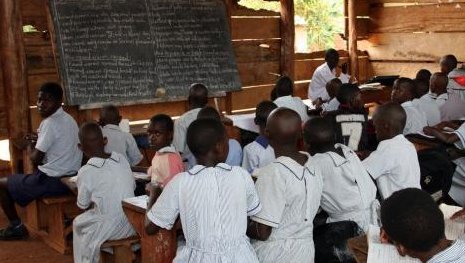KAMPALA, Uganda (GPI)-- Dr. Violet Okaba, 31, a pediatrician at Mulago Hospital in Kampala, Uganda’s capital, says she almost had to drop out of school when she was a teenager. Her father lost his job when she was 16, and her mother’s salary as a primary school teacher was insufficient to support the family’s seven children. “I knew my parents might not be able to pay my fees,” Okaba says. “I decided to go and explain my plight to the headmistress.” Okaba says it was hard for her to share her family's financial dilemma with the headmistress of her prestigious Catholic school, where most students’ parents could afford their tuition. But the headmistress agreed to let her continue while her parents came up with the money. “Luckily, towards the end of the term, my parents were able to pay the fees,” says Okaba, smiling confidently in her office on the hospital’s pediatric ward. But when faced with fees for the second term, Okaba decided to apply for financial support from an organization she had heard about that helped young women to stay in school: Forum for African Women Educationalists. The pan-African nongovernmental organization works to improve education access for girls. “I was surprised and excited a few days later when they arrived with the press,” she says. “I was not used to receiving visitors, and this was a great day for me.” Okaba says she was one of the first recipients of a scholarship from the organization, so the press was invited to cover the ceremony at her school. With her fees worries over, Okaba was able to concentrate on her studies. She earned a government sponsorship to study medicine and surgery at Makerere University in Kampala. She now works as a pediatrician at Mulago Hospital, Uganda’s main referral hospital. Government officials and education advocates say that despite recent strides, girls still face obstacles to education, ranging from poverty levels to cultural practices. The Forum for African Women Educationalists supplements government schemes in order to help girls and young women to afford secondary school and university fees. Former program beneficiaries also become mentors to girls around the country, as advocates recognize that education for girls extends beyond school enrollment. School enrollment at all levels increased for both males and females in Uganda from 2001 to 2009, according to the World Bank’s World Development Report 2012. Girls have mostly achieved parity with boys in terms of enrollment, although girls still lag behind boys in secondary school by about 5 percent. In Uganda, inequality in school attendance among children ages 12 to 15 is low, according to 2009-2010 data in the World Bank report. While gender accounts for about 6 percent of this inequality, wealth accounts for about 80 percent. Mubarak Mabuya, the principal gender officer at the Ministry of Gender, Labour and Social Development in Kampala, says the government has implemented various strategies to improve education for girls. For example, all girls can attend public primary school for free through the Universal Primary Education Program, Mabuya says. Those who meet grade requirements can go on to secondary school for free through the Universal Secondary Education Program. But fewer girls continue to secondary school after completing primary school, Mabuya says. Despite the major strides made in ensuring that girls access education, there are still more boys than girls studying at the primary and secondary levels. He attributes this to parents’ preference of educating boys, poverty, forced early marriages for girls and teenage pregnancies.
Advertisement















